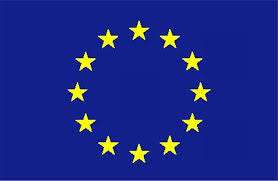France and Friends Shared Liquidity Could Start in 2017
We knew a couple weeks ago that France, Portugal, Spain, and Italy – four European countries who had online poker ass-backwards (though not as much as the United States does) – were finally going to allow for shared player liquidity. It is not perfect, as it doesn’t include all countries with regulating online gaming, but they announced that they would sign an agreement to share player pools among the four countries. Last week, as promised, the agreement was signed. I was going to say, “so no surprises there,” but there was actually a bit of a surprise in the announcement from the four countries’ gaming regulatory bodies: liquidity sharing may happen this year.
Here is the brief statement each nation released:
The 6th of July the French, Portuguese, Spanish and Italian online gambling regulatory authorities signed an agreement concerning online poker liquidity sharing.
This agreement aims at improving cooperation and information exchanges among the authorities to allow the liquidity sharing between licensed online poker operators, fighting the illegal market and fraud, guaranteeing player protection and the respect of the anti-money laundering prescriptions.
The concrete implementation of the sharing will depend on the regulatory requirements of each jurisdiction.
The authorities commit to make their best efforts to enable effective implementation by the end of the year.
Look at that last sentence. While no promises are being made – and since this is government agencies we’re talking about, perhaps we shouldn’t expect the sun, moon, and stars – it is entirely possible that players in France, Portugal, Spain, and Italy could be playing at online poker tables together before the year is up.
In an article from early June, my colleague, Haley Hintze wrote something with which I whole-heartedly agreed:
No final date has been scheduled or even suggested for all four countries to reach agreement, sign the trade pacts, and approve one or more operators for the combined market. It’s unlikely that such liquidity-sharing could arrive before 2018, and even 2019 is a possibility. Nonetheless, it’s great to see that that the four firewalled western European nations have recognized that online-poker needs a thriving player base to survive and thrive, and that their single-nation approach just isn’t getting it done.
To get everything done among the four countries that would be required to launch shared liquidity seems like a task that would take quite some time, particularly when it comes to negotiating the finer details of regulation and taxation (the technical issues are likely relatively simple, based on what is already in place). But the gaming regulators have surprised us and have said the goal is to have everything wrapped up with a bow in 2017.
 The importance of all of this has to do with the viability of online poker in the four countries. For whatever reason – likely some sort of fear of not being able to agree on cross-border regulations or something – the four countries decided to ring-fence their online poker players from the rest of the world. That is, players in France could only sit at the virtual tables with other players from France. Ditto for Portugal, Spain, and Italy. Obviously, this severely limited the potential player pools for each country.
The importance of all of this has to do with the viability of online poker in the four countries. For whatever reason – likely some sort of fear of not being able to agree on cross-border regulations or something – the four countries decided to ring-fence their online poker players from the rest of the world. That is, players in France could only sit at the virtual tables with other players from France. Ditto for Portugal, Spain, and Italy. Obviously, this severely limited the potential player pools for each country.
This was a big deal because online poker is dependent on player liquidity – that is, the availability of players – to grow and even simply survive. Imagine you want to open an online poker account and are deciding between two sites. You download the software for Poker Room A and check out the lay of the land. There are hundreds of active cash game tables: full ring, six-handed, heads-up, Hold’em, Stud, Omaha, Mixed Games. It’s all there. Tournaments and Sit-and-Go’s about. The place is jumping, looks great.
Then you download Poker Room B to check it out and see maybe a handful of full tables, a few others with three or four players, almost all just Texas Hold’em.
Which one would you choose? Poker Room A, with its abundance of players – it’s strong player liquidity – is going to attract more players and continue to grow. Poker Room B, struggling to fill its tables, will continue to decline because not only will nobody want to sign up, but those already playing there will leave for greener pastures.
It’s a similar deal with ring fenced countries. When Portugal limits its online poker rooms to pulling players from just Portugal, it puts a cap on online poker’s potential in the country. The internet poker tables don’t thrive and players start to logoff because it’s just not worth it to struggle to find decent games. Many won’t seek greener pastures because there are no legal ones in which to graze, but others will move on to unregulated “black market” sites and risk a lack of player protection just to enjoy more poker activity.
Again, the agreement between the four countries isn’t perfect, as it doesn’t open up shared liquidity to the entire world or even the rest of Europe, but it’s a start and should be enough to keep online poker viable and provide the governments with more tax revenue.



















COMMENTS